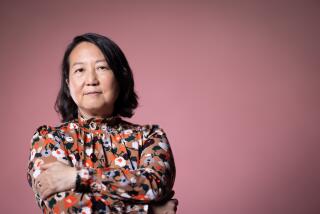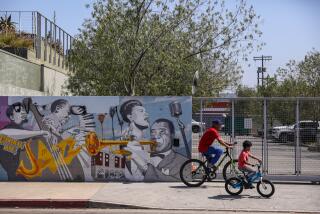The Trials of Interpreting Cultural Cues
This is a parable of the new Los Angeles, where many cultures live in mutual misunderstanding.
Chang-Hwan Pyon is a Korean-born businessman nominated by Mayor Richard Riordan to serve on the city Human Relations Commission. Although he has been in this country 28 years and he speaks clear English, his voice is so soft that at first acquaintance it’s hard to hear him. This is especially true when he speaks to people he considers important.
As Pyon explains it, this is a sign of respect. “We [Koreans] don’t speak loudly to a high-ranking person,” he said.
In contrast, Rita Walters is a no-nonsense African American City Council member who conducts her business with a brusque, tough manner she brought to the classroom when she was a public schoolteacher. When you talk to Walters, you’d better make your point quickly, and in a clear, strong voice.
Walters is chairwoman of the committee that must approve Pyon’s nomination. Pyon called on her recently to press his case.
The event was a classic culture clash, a total mismatching of minds that could have ended in Pyon’s rejection.
*
I talked to Pyon and Walters this week and tried to reconstruct what happened.
Early in the brief meeting, Walters fired off a question about Pyon’s stand on affirmative action programs. Support for affirmative action has become a litmus test for liberal council members screening Riordan appointees.
Pyon backs affirmative action. But in a nervous effort to show respect to the councilwoman, he failed to speak up clearly. Instead, Pyon spoke softly, as he had been taught in Korea. “I think I’m still not Americanized,” he told me after the meeting. “I don’t say my culture is good or bad. But it is my personality trait.”
Walters misunderstood Pyon’s shyness. “I was trying to engage him in conversation and it became quickly apparent the gentleman was having great difficulty with the language and [with] communicating,” she said.
Later, when she encountered Riordan in the City Hall garage, she told him she wondered “if he would consider appointing the gentleman to another commission where communication skills are not as important.”
The delay created a stir, especially in some parts of the Korean American community.
Relations between African Americans and Korean Americans have been shaky for several years. Black leaders have criticized the many Korean-owned liquor stores and small groceries selling beer and wine in South Los Angeles. In one tragically divisive incident, an African American teenager, Latasha Harlins, was shot to death by a Korean grocery store operator, Soon Ja Du, in a dispute that began over allegations of shoplifting. And Korean American businesses were destroyed during the 1992 riots, many by African Americans.
Since then, human relations groups have been trying to improve relations, but hard feelings remain. It wasn’t surprising that when Walters held up Pyon’s nomination, Korean Americans began suspecting Walters was prejudiced against them.
“When the Korean reporter asked about it, I said it was a personnel matter,” Walters said. She called up Riordan and said the nomination would be an embarrassment because of Pyon’s speech.
“Maybe what the city ought to do is hire an interpreter, so he would be comfortable in speaking his own language and it could be translated to the rest of us,” she told me.
*
By City Hall standards, the affair seems to have been settled relatively peacefully.
After his conversations with Walters, Riordan talked to Pyon. “It was hard not to understand him,” Riordan told me. “I called her [Walters] and told her she was mistaken. She said, ‘Why not put him through?’ ”
Walters will hold a committee hearing Feb. 26, and confirmation seems assured.
Pyon would become the only Asian American on a Human Relations Commission that now has four whites, three blacks and two Latinos.
He and his new colleagues will have a tough job. The commission is embarking on a new program of trying to clear up ethnic misunderstandings. But as we can see from the encounter between the soft-spoken Korean American and the outspoken African American, it won’t be easy.
More to Read
Sign up for Essential California
The most important California stories and recommendations in your inbox every morning.
You may occasionally receive promotional content from the Los Angeles Times.










